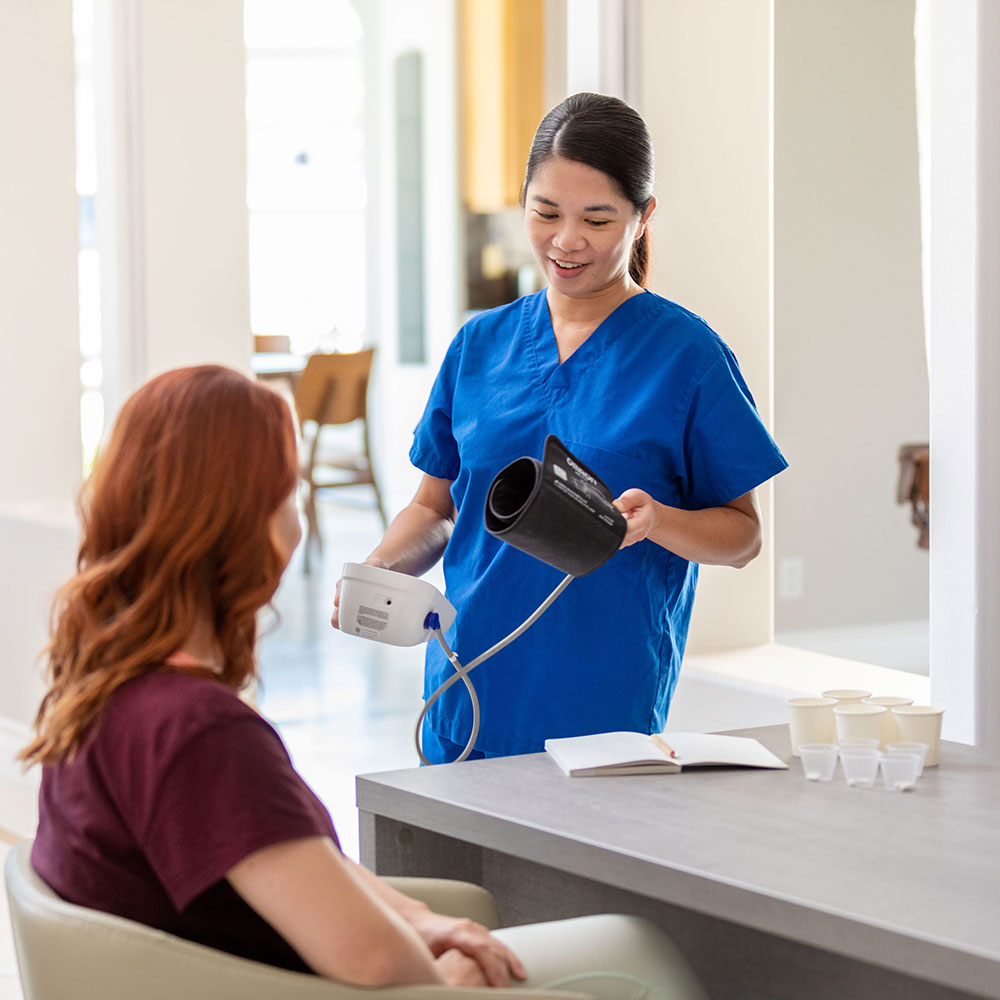Alcohol and Depression
When someone suffers from depression, they may feel isolated, irritable, or withdrawn. Many people use unhealthy coping techniques to mask their depression. They may resort to using drugs or drinking alcohol to feel better temporarily. This only makes things worse. The two often go hand-in-hand.

What is the Connection Between Depression and Alcohol?
While depression generally gets better with treatment, it can cause devastating consequences of a diagnosis. Depression and alcoholism treatment requires proper medication and psychosocial interventions, a solid doctor-patient relationship, and a commitment to treat both disorders.
Evidence is provided from clinical treatment trials and changes made in the delivery of action toward inpatient and outpatient settings. That brings into question the long-held view that patients with co-occurring depression and alcohol dependence must abstain from alcohol before treatment of depression can begin. Factually, there were excellent reasons for sticking with this aspect.
How Alcohol Abuse Can Factor into Depression
There are concerns about medication interactions with alcohol in people who still drink. Depressive symptoms can be brought on by alcohol use, which makes it difficult to separate a substance-induced depression from an independent disorder of major depressive disorder.
Alcohol can heighten the symptoms of depression, which can have life-threatening implications. This is because alcohol impacts the same areas of the brain that help regulate mood. Drinking can alter the brain’s chemical levels, which can trigger the symptoms of a mental health illness, such as depression. Alcohol can significantly impact the neurotransmitters in your brain. This makes depression worse. Antidepressants will help even levels of these chemicals and can help relieve symptoms of depression.
Alcohol use disorder and clinical depression are two conditions that frequently occur together. Moreover, one can worsen the other in a pervasive and problematic cycle if not addressed and treated.
People use alcohol to try to cope with these feelings. Some view it as a “release.” However, this is just self-medicating, which causes a dependency on alcohol.
Some with depression frequently lose interest in activities that once brought them joy, like hobbies and social events. As a result of this, they may struggle to complete daily tasks.
Trauma is a risk factor for alcohol abuse and depression. Those with major depression at an earlier age may drink earlier in life, making it seem nearly impossible to stop once they start because it is the only coping mechanism they know.
Symptoms of depression can include:
- Feeling worthless
- Sadness
- Fatigue
- Loss of interest in hobbies and activities
- Lack of energy to complete daily tasks
- Difficulty concentrating
- Guilt
- Substance use
- Suicidal thoughts
Symptoms of alcohol use disorder might include:
- Drinking too much in any one episode
- Drinking frequently, even daily
- A continual craving for alcohol
- Sneaking alcohol about, so others won’t observe it
- Continuing to drink despite negative consequences, both to physical health and relationships
- Avoiding activities to drink
- Continued drinking despite symptoms of depression or a mood disorder
Can Alcohol Make Depression Worse?
- Medication
Alcohol can significantly impact the neurotransmitters in your brain, making depression significantly worse. Antidepressants help even levels of these chemicals and can help relieve symptoms of depression. In addition, your doctor may prescribe medicines to lower alcohol cravings, reducing your desire to drink. - Rehabilitation
Individuals with alcohol use disorder often develop a physical dependency on alcohol. Abstaining may cause symptoms of withdrawal. Symptoms can be severe and possibly life-threatening. Rehabilitation facilities can help go through the withdrawal process with medical supervision. Most doctors recommend that addicts check into a rehab facility. Most undergo therapy to address depression, too. During treatment, they can learn to cope mechanisms to assist their return to life without drinking. - Therapy
Cognitive behavior therapy (CBT) is a beautiful type of psychotherapy. It helps understand events and thought processes that lead to depression and substance abuse. In addition, cognitive behavior therapy can teach them ways to modify thoughts and behavior to feel better and help avoid misusing alcohol. - Support groups
Alcoholics Anonymous (AA) and alcohol treatment centers provide classes and support group meetings. In these, you can also build a sense of community; find support from others in the same situation. In addition, you can also find regular reinforcement for changes to stay sober and healthy.It is necessary to seek help for those we love when suicidal thoughts when these patterns are shown:
An inability to perform daily tasks because they have too little energy or drink too much.
Continuing to drink or craving alcohol, continuing to drink despite losing a job, ending relationships, losing money, or other adverse effects are when it is necessary when any of these behaviors or actions start becoming noticeable.
Because depression causes people to isolate, it may be difficult for them to open up about it, but it is essential to make them feel safe. It is also important to provide a safe environment and give full support when they feel comfortable enough to share what is happening.
Treatment for Co-Occurring Depression and Alcohol Use Disorder
Spark to Recovery offers a long-term residential treatment center for people struggling with addiction. Our approach is specifically tailored care for each client’s unique treatment needs. Many programs are offered, including residential treatment, traditional and alternative therapies, individual and group counseling, skills for life, family therapy, detox, and independent living. A substance abuse treatment plan is an individualized, written document that details a client’s goals and objectives, the steps needed to achieve the goals and a timeline for treatment. The client and the clinician mutually agree upon these plans.
